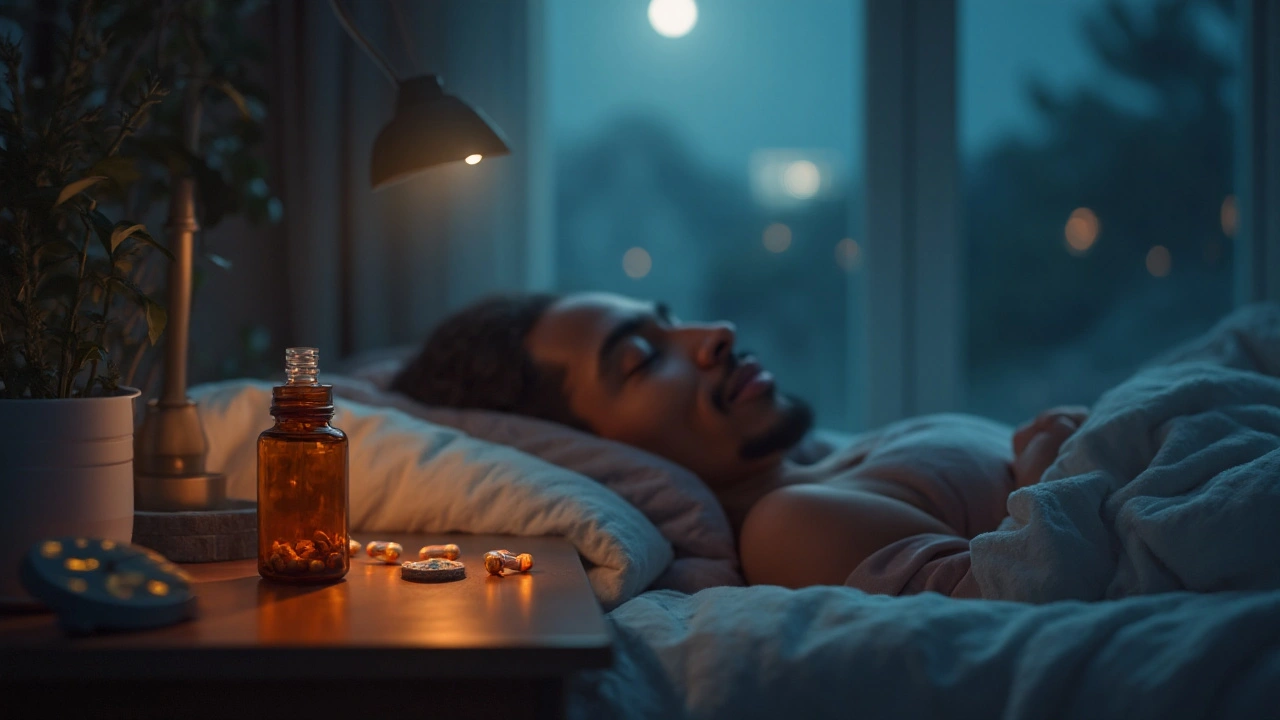Sleep Aid: Easy Ways to Get Better Rest
Struggling to drift off at night? You’re not alone. Most adults need 7‑9 hours of quality sleep, but stress, screens, and irregular schedules can steal those hours. The good news is that a few simple tweaks and the right sleep aid can put you back on track without a pharmacy run.
Everyday Habits That Boost Sleep
First, look at your bedtime routine. Turn off bright screens at least 30 minutes before bed – the blue light tricks your brain into thinking it’s still daytime. Replace scrolling with a calming activity like reading a paperback or gentle stretching. Keep the bedroom cool (about 65°F/18°C works for most people) and dark; blackout curtains or a sleep mask make a big difference.
Next, watch your caffeine and alcohol intake. A coffee or tea after 2 p.m. can linger in your system and keep you wired. Alcohol may help you fall asleep, but it disrupts the deeper sleep stages, leaving you groggy the next morning. Aim for water, herbal tea, or a small snack if you’re hungry close to bedtime.
Choosing the Right Sleep Aid for You
If lifestyle changes aren’t enough, consider a sleep aid that fits your needs. Natural options like melatonin are popular because they mimic the hormone that signals darkness to your brain. A low dose (0.5‑3 mg) taken 30 minutes before bed often works for shift workers or jet lag. Valerian root, chamomile tea, or magnesium supplements can also calm nerves without a prescription.
Over‑the‑counter (OTC) medications such as diphenhydramine (found in many “nighttime” pain relievers) can induce drowsiness, but they may cause next‑day grogginess, dry mouth, or blurry vision. Use them sparingly and avoid long‑term reliance.
Prescription sleep aids like zolpidem or eszopiclone are powerful, but they carry risks of dependence, tolerance, and complex sleep‑related behaviors (like sleepwalking). They should only be used under a doctor’s guidance, typically for short periods.
Safety always wins. Check for interactions with other meds you take – many sleep aids can amplify the effects of antidepressants, antihistamines, or alcohol. If you have a history of breathing problems, liver disease, or mental health issues, talk to a healthcare professional before starting any new product.
When you notice persistent trouble falling asleep, staying asleep, or waking up feeling unrested for more than two weeks, it’s time to see a doctor. Chronic insomnia can signal underlying conditions like anxiety, depression, or sleep apnea that need proper treatment.
Bottom line: start with solid sleep hygiene, add a gentle natural aid if needed, and reserve strong medications for short‑term, doctor‑approved use. With the right mix, you’ll be able to lock in better rest and wake up ready for the day.
Discover what melatonin does, how it helps you sleep, the right dosage, potential side effects and safe‑use tips. A practical guide for anyone considering the supplement.

